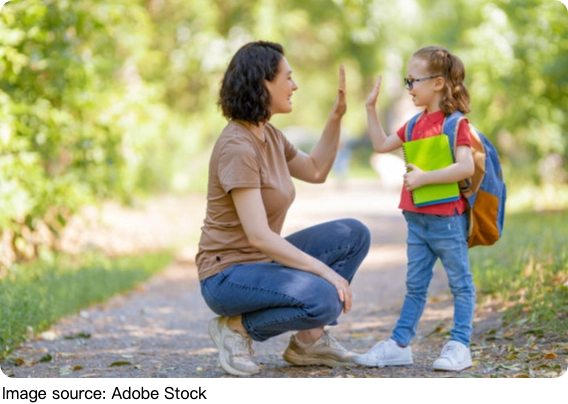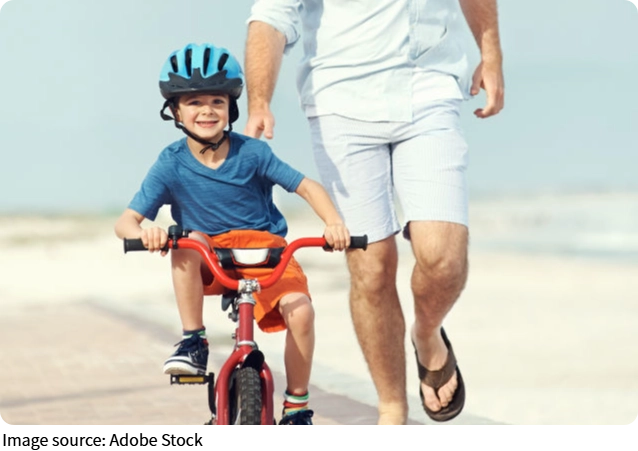Personalized Learning Power

Have you ever noticed that no two kids learn exactly the same way? Some grasp ideas quickly through reading, others by hands-on activities or videos. That's why personalized learning is becoming more than just a trend—it's a growing need in modern education.
As parents, teachers, or anyone who cares about a child's future, we should understand how this approach works and why it's so valuable during their most important years of growth.
What is personalized learning?
Personalized learning means adjusting teaching methods, materials, and pace to fit each child's unique needs, strengths, and interests. Instead of a “one-size-fits-all” model, students follow learning paths that help them succeed in their own way.
This might include:
• Letting faster learners move ahead at their own pace
• Giving extra support where a child is struggling
• Using different tools (books, videos, games) depending on what works best
It's not about making things easier—it's about making learning more meaningful and effective.
Helps kids build confidence
When a child is forced to keep up with a class that moves too fast—or gets bored because it's too slow—they start to lose motivation.
With personalized learning, kids can:
• Learn at their own speed
• Celebrate small wins along the way
• Focus on improvement instead of comparison
This boosts self-confidence, which plays a huge role in how kids handle challenges inside and outside of school.

Encourages curiosity and passion
One of the biggest benefits of personalized learning is that it lets kids explore what excites them.
If a child loves animals, math problems can involve pets. If they're into space, reading assignments can include planets and astronauts. Connecting lessons to real interests makes learning more fun and lasting.
When children are curious, they ask more questions, dig deeper, and enjoy the process—and that's when real growth happens.
Addresses learning gaps early
Some kids struggle quietly in a traditional classroom and don't speak up. Personalized learning tools—like online assessments and learning apps—can detect these gaps early.
Teachers can then offer:
• Extra practice in weak areas
• Visual aids or different explanations
• One-on-one attention or peer support
This kind of support prevents small issues from becoming big problems later. It helps every student stay on track and feel capable.

Prepares kids for real life
In the real world, success comes from knowing how to solve problems, adapt, and keep learning. Personalized learning helps develop these exact skills:
• Self-awareness: Kids learn what kind of learning works best for them
• Responsibility: They get used to managing their own progress
• Critical thinking: They're encouraged to find answers in different ways
This prepares them for jobs, relationships, and challenges they'll face as they grow up.
Technology makes it easier
Thanks to digital tools, personalized learning is more accessible than ever. Platforms like adaptive learning apps, online tutoring, and digital textbooks can adjust content in real time based on a child's performance.
Even in traditional classrooms, teachers can now use technology to keep learning flexible, interactive, and up-to-date.

Let's support every child's path
Every child has a different learning journey. Personalized learning gives them the space and tools to grow in their own way—not just to pass tests, but to become curious, confident, and capable learners for life.
Lykkers, have you seen how personalized learning has helped a child in your life? Or maybe you're curious how to bring this approach into your own classroom or home? Let's talk about how we can make learning more human, more fun, and more effective—together.
-
 Signs Baby CalciumWondering if your baby needs more calcium? Learn key signs to spot calcium deficiency early and keep your little one healthy!
Signs Baby CalciumWondering if your baby needs more calcium? Learn key signs to spot calcium deficiency early and keep your little one healthy! -
 Cotton's Amazing JourneyWhy and How Does Cotton Grow?
Cotton's Amazing JourneyWhy and How Does Cotton Grow? -
 Closet Space HacksTired of messy wardrobes and wasted space? These 8 simple tricks will help you organize your closet like a pro!
Closet Space HacksTired of messy wardrobes and wasted space? These 8 simple tricks will help you organize your closet like a pro!